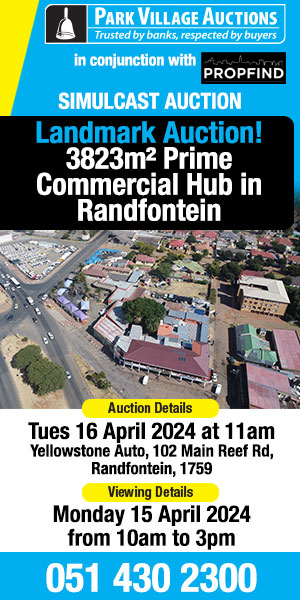Construction sector in doldrums over delayed projects
INFRASTRUCTURE development bottlenecks are weighing heavily on SA’s construction companies.
 Construction companies are taking advantage of the surge in infrastructure spending in developing countries around the world.
Construction companies are taking advantage of the surge in infrastructure spending in developing countries around the world.
But the pace of infrastructure development in SA, despite government’s commitment to spend R845-billion in the next few years, is cause for considerable concern as major projects are being delayed, cancelled or reworked.
Not only does this affect the construction companies, but thwarts efforts to create jobs in an industry that could make a meaningful contribution to job creation and economic growth.
Construction companies, who all reported results over the past two weeks, experienced a year characterised by the loss of major multibillion-rand projects in the Middle East, delays in public-sector infrastructure investment, the postponement or cancellation of mining and other big projects, and the effects of a strong rand.
These factors affected companies to varying degrees, and strong results from companies like Basil Read and Wilson Bayly Holmes-Ovcon (WBHO) indicated that they hardly seemed to notice.
Luckily, some major construction projects had already started before the economic meltdown, including World Cup stadiums, Eskom’s build programme (although some parts have been delayed), airports and roads.
SA’s construction companies have delivered the World Cup stadiums, and continued to complete and get major projects internationally.
Their order books shrank, but have since stabilised or are picking up.
But they are all concerned about whether government will ramp up its infrastructure plans as significant portions of their project pipelines were expected to be taken up with such activity.
During the past year they already faced delays relating to Eskom’s power plant build programme, with the Kusile plant being pushed out, initially for a year, but many say it will be longer. There have also been delays and disruptions to the Gautrain and roads and transportation projects.
In the interim, they are focusing on seeking projects elsewhere to secure a strong order book and revenue stream.
This week Aveng reported a 33% drop in headline earnings for the six months to December. Revenue declined 5% to R16.8 billion, largely because its manufacturing and processing division was affected by the steel price, as well as poor results from Australasia and the Pacific regions. SA and Africa operations were strong.
Tender development expenses took a chunk out of operating profit.
It secured contracts in SA and West Africa, including at Sishen and the Sadiola gold mine in Mali.
Aveng said the rate of public sector contract awards in SA was slow, but construction spend in Australia “is underpinned by large-scale public infrastructure investments”.
Results from other construction companies were mixed. Murray & Roberts’ earnings dropped sharply, but Group Five’s earnings were 8% higher.
WBHO and Basil Read reported strong earnings growth.
Group Five said that, to mitigate the downturn in the private sector, future work would be provided locally by infrastructure investment in housing, transport, prisons, government buildings and hospitals. It said that “the timing of resumption in government infrastructure spending has been and will remain a key factor for the domestic South African construction industry”.
While there is planning for R40-billion in the public-private partnership and concessions market for large public buildings, roads and power developments, only a few awards have been made, it said.
In the Middle East, however, there were new infrastructure opportunities, including in power and heavy industries.
At Group Five’s construction business, over-border work contributed 17% to construction revenue, down from 45% the previous year, reflecting the impact of the cancellation of Middle East orders and the decline in the mining industry.
But now it is focusing “on a more aggressive over-border presence in favour of public infrastructure contracts, as well as other opportunities”.
Murray & Roberts’ order book is heavily weighted to domestic major long-term public sector projects, it said. The order book has increased by 10%, but is still 27% below the R60-billion of December 2008.
“It is the group’s view that to attract significant new private-sector investment back into the South African market, tangible evidence is required that the infrastructure backlog is being replaced and enhanced with an infrastructure surplus.”
Middle East markets, with the exception of Dubai and Bahrain, have rebounded.
Murray & Roberts said it was involved in a delay and disruption claim relating to Gautrain, brought about by late transfer of land, dolomite rectification works and funding constraints.
About R2-billion of its working capital was in domestic public sector projects, of which about R350-million was in overdue debt. In the transport and power sectors, there have been delays with current contracts, in new contract awards and with the certification of payments, it said.
Most Popular
Attacq and Nedbank Corporate and Investment Banking (CIB) Achieves Dual Milestone with SA’s first EDGE and Green Star Certification for Nexus commercial building
Accelerate Property Fund sells Cherry Lane Shopping Centre for R60m
FNB Broker Business Confidence declines in 1st quarter of 2024
Repo rate holds steady for 5th consecutive MPC meeting
Urbanisation drives demand for affordable housing in the Eastern Cape, TUHF

eProperty News is a leading online commercial property marketplace serving the Southern African Investment, Office, Retail and Industrial property and allied sectors.








